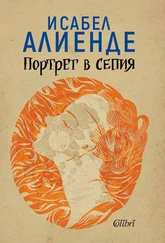Victor attributed the accident to the fact that Aitor Ibarra and his lucky star had not been with him to protect him. Aitor was the one who had taken him to the train that brought him to Valencia together with dozens of other wounded men. Victor’s leg was immobilized by lengths of wood kept in place by bandages—his flesh wounds meant it couldn’t be encased in plaster. He was wrapped in a blanket, shivering from cold and fever, and tormented by every jolt of the train, but grateful that he was in a better state than most of those lying with him on the floor of the wagon. Aitor had given him his last cigarettes, as well as a dose of morphine that he made Victor promise to use only in a dire emergency, because he wouldn’t get any more. In the hospital at Valencia, they congratulated him on the good work the English doctor had done. If there were no complications, his leg would be like new, although a little shorter than the other one, they told him.
Once the wounds began to heal and he could stand using a crutch, they set his leg in plaster and sent him to Barcelona. He stayed at his parents’ home playing endless games of chess with his father until he could move about unaided, and then went back to work at a local hospital, where he attended civilians. To him, this was like being on vacation; compared to what he had experienced on the battlefront, it was a paradise of cleanliness and efficiency.
He stayed there until the following spring, when he was sent to Sant Andreu in Manresa. He said goodbye to his parents, and to Roser Bruguera, the music student the Dalmau family had taken in. During the weeks of his convalescence, Victor had come to think of her as one of the family. This modest, likeable girl who spent endless hours in piano practice had provided the company that Marcel Lluis and Carme were in need of ever since their own children had left home.
—
IT WAS NOT LONG after that he returned to the front. A young militiawoman, her cap tilted to counter the ugliness of her uniform, was waiting for Victor Dalmau at the door to the operating room. The moment he came out, with three days’ growth of beard and his white coat spattered with blood, she gave him a folded piece of paper with a message from the telephone operators. Dalmau had been on his feet for hours; his leg was aching, and he had just realized from the deep rumble in his stomach that he hadn’t eaten since dawn. The work was relentless, but he was grateful for the opportunity to learn in the magnificent aura of Spain’s leading surgeons. In other circumstances, a student like him would never even have gotten near them, but by this stage of the war, studies and diplomas were less valuable than experience; and he had more than his fill of that, as the hospital director assured him when allowing him to assist during surgery. By this time, Dalmau could work for forty hours at a stretch without sleeping, able to keep going thanks to tobacco and chicory coffee, and not even noticing the hindrance of his leg.
Unfolding the piece of paper the militiawoman had handed him, Victor Dalmau read the message from his mother, Carme. Even though the hospital was only sixty-five kilometers from Barcelona, he had not seen her in seven weeks, because he had not had a single free day when he could take the bus home. Once a week, always at the same time on a Sunday, she called him on the telephone, and on the same day also sent him some sort of gift, chocolate from the International Brigades, a sausage, a bar of soap bought on the black market, occasionally even cigarettes. To Carme the latter were the real treasure, because she couldn’t live without nicotine. He wondered how she managed to get hold of them. Tobacco was so prized that the enemy planes used to drop it from the sky along with loaves of bread, mocking the shortages on the Republican side and showing off the abundance the Nationalists enjoyed.
A message from his mother on a Thursday could only mean there was an emergency. “I’ll be at the telephone exchange. Call me.” Her son calculated she must have been waiting almost two hours by now, the time he had been busy in the operating theater before he got her message. He went down to the offices in the basement and asked one of the operators to connect him to the Barcelona exchange.
Carme Dalmau came on the line and, in between bouts of coughing, told her son he had to come home because his father had only a short while to live.
“What happened to him? He was good and healthy when I last saw him!” Victor exclaimed.
“His heart has given out. Tell your brother so that he can come to say goodbye as well, because he could be gone before we know it.”
It took Victor thirty hours to locate Guillem on the Madrid front. When they were finally able to communicate by radio, through a cacophony of static and sidereal crackles, his brother explained it was impossible for him to get leave to go to Barcelona. His voice sounded so distant and weary that Victor barely recognized it.
“Anybody who can fire a rifle is absolutely needed here, Victor, you know that. The Fascists have more troops and weapons than us, but they’ll not pass,” said Guillem. He was repeating the Republican slogan made popular by a woman named Dolores Ibarruri, appropriately known as La Pasionaria because of her ability to rouse fanatical enthusiasm among the Republicans. Franco had by now occupied most of Spain, but had been unable to take Madrid. Its defense, street by street, house by house, had become the symbol of the war. The Fascists could count on the colonial troops from Morocco, the feared Moors, as well as the formidable aid of Mussolini and Hitler, but the Republicans’ resistance had held them up in the capital. At the outbreak of war, Guillem Dalmau had fought with the Durruti column in Madrid. Back then, the two armies faced each other at the Ciudad Universitaria; they were so close that in some places there was only a street between them; the adversaries could see one another’s faces and hurl insults without even having to shout. According to Guillem, holed up in one of the buildings, the enemy shells had pierced the walls of the Faculty of Philosophy and Liberal Arts, the Faculty of Medicine, and Casa de Velazquez. There was no defense against the shells, he said, but they had calculated that three volumes of philosophy could stop bullets. He was nearby at the death of the legendary anarchist Buenaventura Durruti, who had come to fight in Madrid with part of his column after spreading and consolidating the revolution in the Aragon region. He died from a bullet fired point-blank into his chest in dubious circumstances. His column was decimated: more than a thousand militiamen and -women were killed, and among the survivors, Guillem was one of the few left unscathed. Two years later, after fighting on other fronts, he had been sent back to Madrid.
“Father will understand if you can’t come, Guillem. We’ll be waiting for you at home. Come whenever you can. Even if you don’t see him alive, your presence will be a great comfort to Mother.”
“I suppose Roser is with them.”
“Yes.”
“Say hello to her from me. Tell her that her letters go everywhere with me, and that I’m sorry I don’t reply very often.”
“We’ll be waiting for you, Guillem. Take care of yourself.”
They said a brief farewell, and Victor was left with a knot in his stomach as he wished for his father to live a little longer, for his brother to return unharmed, for the war to finally end, for the Republic to be saved.
—
THEIR FATHER, PROFESSOR MARCEL Lluis Dalmau, had spent fifty years teaching music. In addition to singlehandedly creating and passionately conducting the Barcelona Youth Orchestra, he had composed a dozen piano concertos, none of which had been played since the start of the war, as well as many songs, some of which were favorites with the militias. He had met his wife, Carme, when she was fifteen years old and dressed in a somber school uniform, and he was a young music teacher twelve years older than she was. Carme was the daughter of a stevedore, a charity pupil of the nuns, who had been preparing her to enter the order since childhood; and they never forgave her for leaving the convent to go off with an atheist good-for-nothing, an anarchist and perhaps even a freemason, who scorned the holy ties of matrimony. After living in sin for several years, until shortly before the birth of Victor, Marcel Lluis and Carme got married to avoid having their child stigmatized as a bastard, which in those days would be a serious obstacle in his life. “If we had had our children now, we wouldn’t have married, because nobody is a bastard in the Republic,” Marcel Lluis Dalmau declared in an inspired moment at the outbreak of hostilities. “If we had had our children now, I would have been pregnant as an old woman, and your children would still be in diapers,” replied Carme.
Читать дальше











